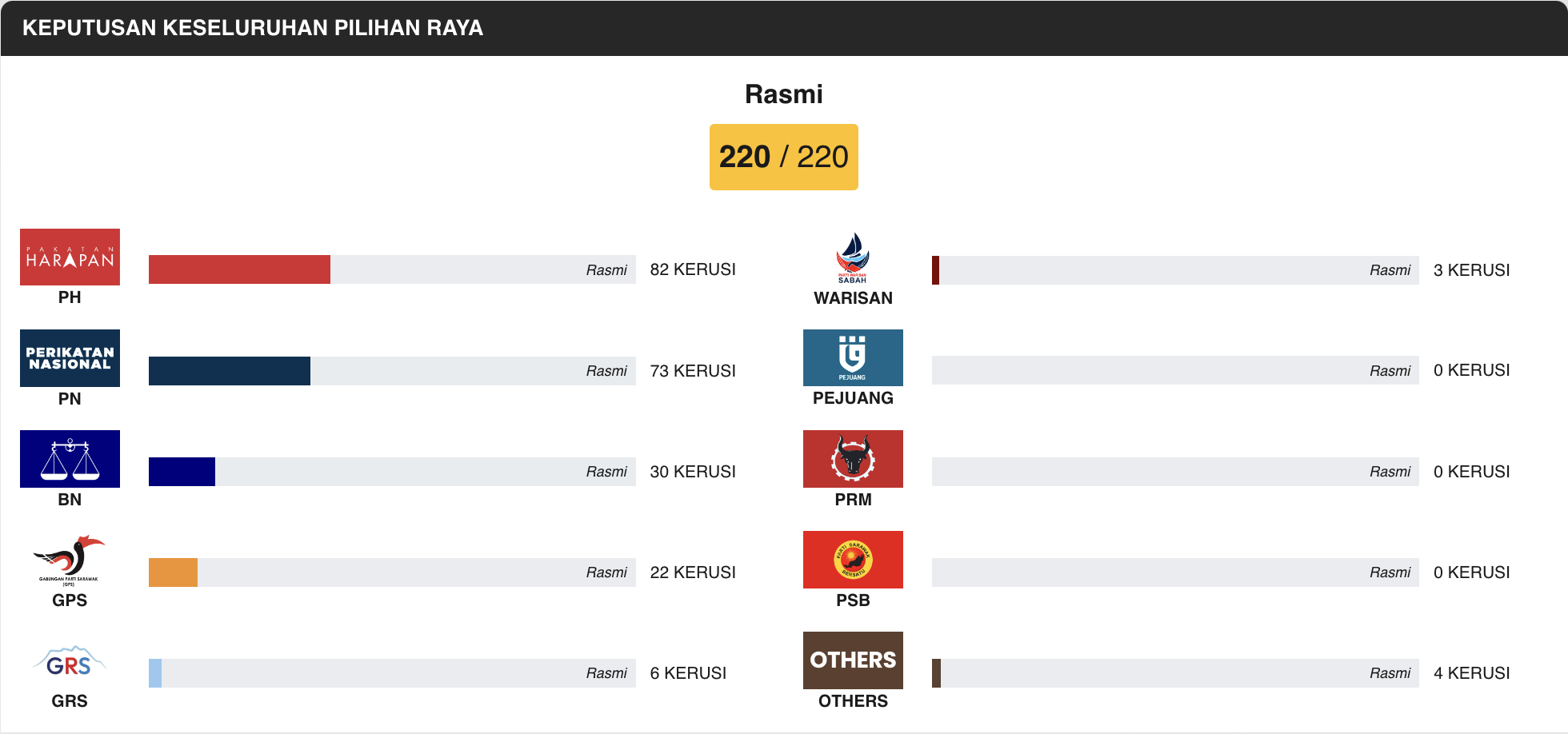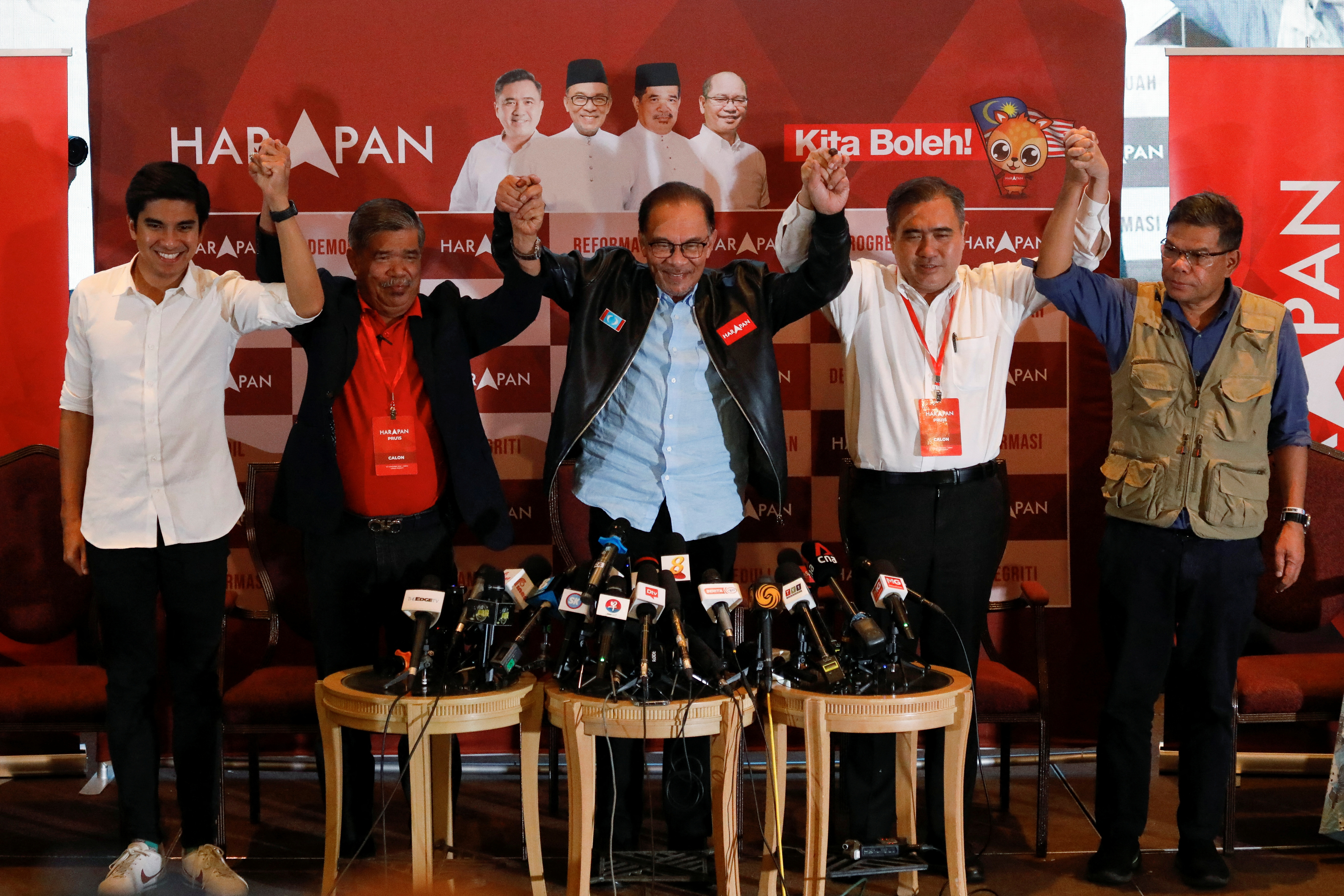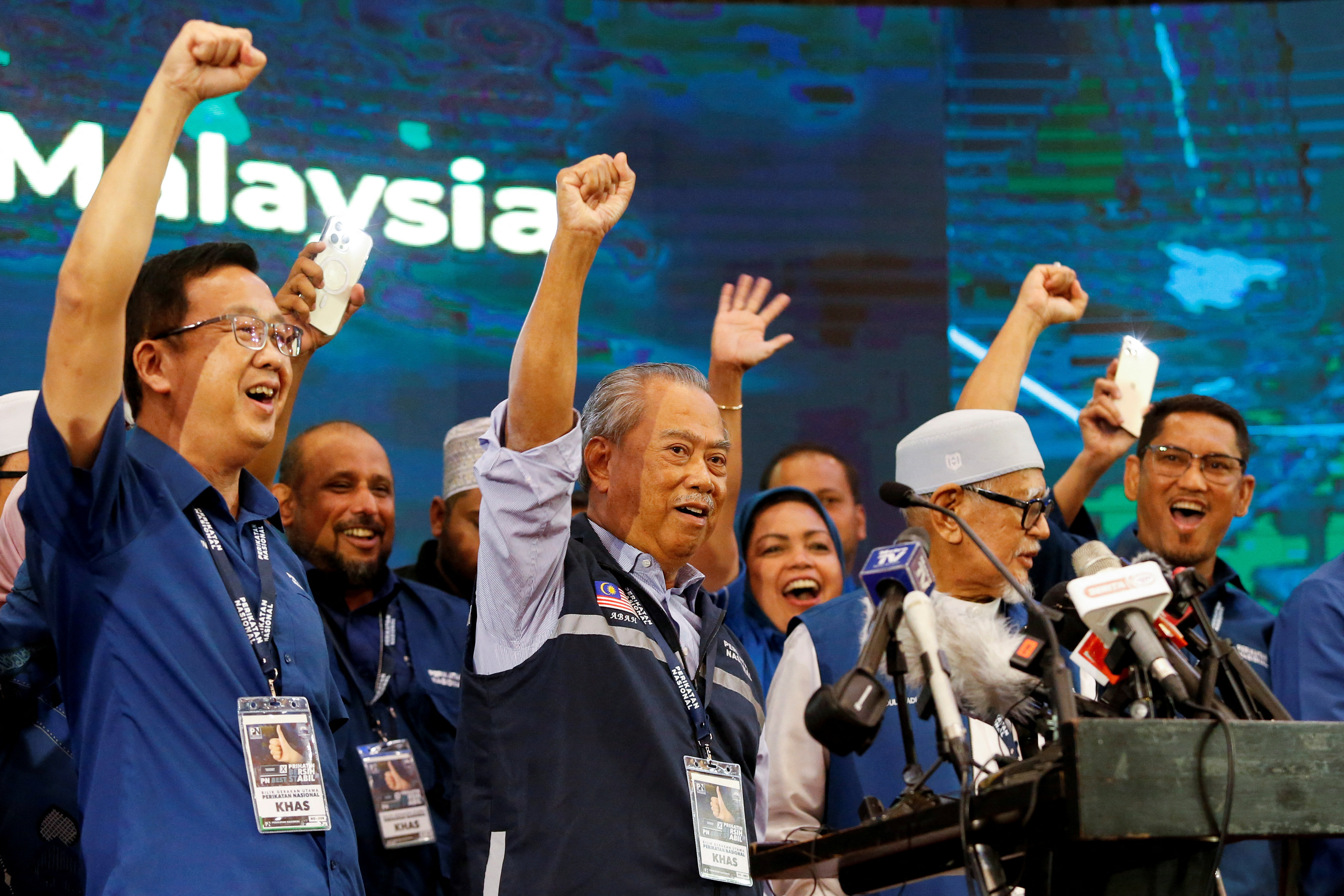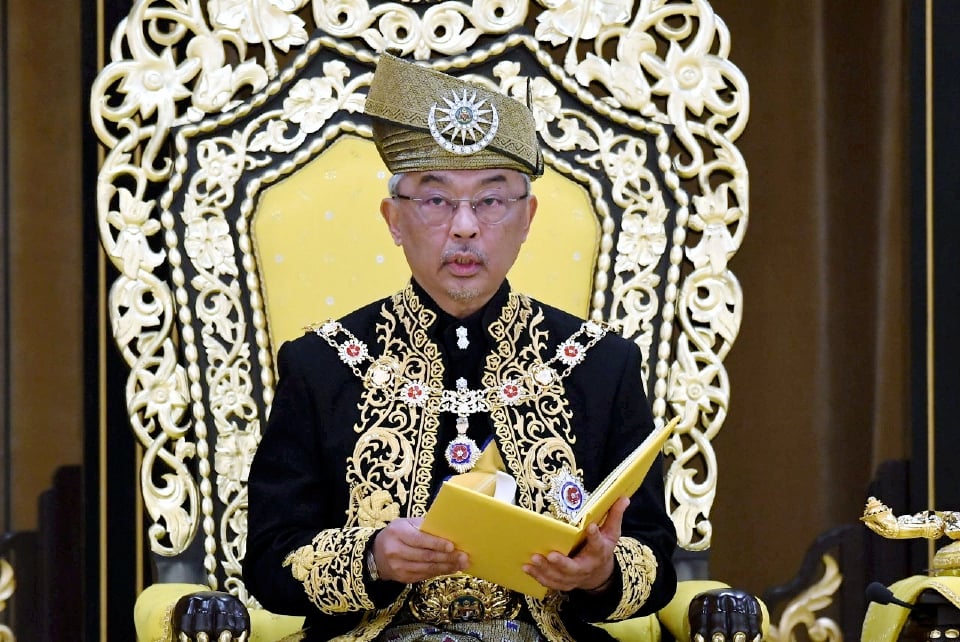Here's What To Expect After GE15's Split Results Leave Politicians Scrambling
No coalition has been able to form a majority yet.
Malaysia's political leaders were scrambling to form a coalition government on Sunday, 20 November, after an election produced an unprecedented hung parliament, with no group able to claim a majority
Longtime opposition leader Datuk Seri Anwar Ibrahim and former prime minister Tan Sri Muhyiddin Yassin each said they could form a government with support from other parties, whom they did not identify.
Muhyiddin said he hoped to conclude talks by Sunday afternoon, although negotiations could take days.
What happened?
Anwar's multi-ethnic Pakatan Harapan (PH) coalition won 82 seats in the lower house, short of the 112 needed for a majority, but ahead of Muhyiddin's Perikatan Nasional (PN) alliance with 73, and Prime Minister Datuk Seri Ismail Sabri Yaakob's Barisan Nasional (BN) with 30.
Muhyiddin's alliance, which includes PAS, emerged as a third major bloc, dividing votes more than had been expected.
It made inroads in strongholds of BN, whose UMNO – long Malaysia's dominant political force – made its worst showing ever.
What next?
Analysts say the most likely government will again be a coalition of Muhyiddin's bloc, BN, and another group. But a minority government is possible if neither Anwar nor Muhyiddin can cobble together a majority.
Muhyiddin, who said he is open to working with any party but Anwar's, said on Sunday he would discuss partnerships with regional parties in Sabah and Sarawak states on Borneo island.
Anwar did not say whom he would work with. In an interview with Reuters this month, he ruled out partnering with Muhyiddin's and Ismail's coalitions, citing fundamental differences.
What is the King's role?
The Yang di-Pertuan Agong Al-Sultan Abdullah Ri'ayatuddin Al-Mustafa Billah Shah could potentially pick the next prime minister.
The monarch has a largely ceremonial role, but the constitution empowers him to appoint as prime minister a lawmaker who he thinks can command a majority in parliament.
Malaysian kings – the post of which rotates among the sultans of the states – have rarely exercised that power, but they have become more influential in recent years amid the political wrangling.
In 2020, when the government of veteran leader Tun Dr Mahathir Mohamad collapsed, the Yang di-Pertuan Agong chose Muhyiddin as premier after interviewing all 222 lawmakers to decide who had majority support. When Muhyiddin's bloc also collapsed, he chose Ismail.
Muhyiddin said on Sunday he had received instructions from the palace on forming a government, but did not disclose what they were. Anwar said he would submit a letter to the king detailing his support.
What are the implications?
Political instability is expected to continue for Malaysia, which has seen three prime ministers in as many years due to power struggles.
The country is adapting to the diminishing power of the BN coalition, which had ruled uninterrupted for 60 years from independence until 2018.
The next coalition will not have a convincing majority and could be plagued with more infighting, hurting the economy.
Voters, frustrated with the instability, may bristle at a new government if it includes the losing parties.




